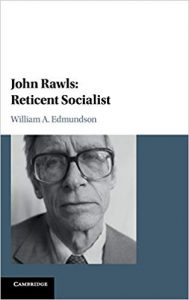Nick Cowen in Notes on Liberty:
 Edmundson has written an admirably concise yet powerful book. It blends a critical account of Rawls’ work with an original case for democratic socialism hewn from Rawlsian stone. In my opinion, this case has some flaws but it remains a timely contribution to the enduring quest for justice and social stability.
Edmundson has written an admirably concise yet powerful book. It blends a critical account of Rawls’ work with an original case for democratic socialism hewn from Rawlsian stone. In my opinion, this case has some flaws but it remains a timely contribution to the enduring quest for justice and social stability.
The initial chapters dispatch the common misconception of Rawls as a supporter of welfare-state capitalism, unpack the Rawlsian case against private property in the means of production being a basic liberty, and examine what Rawls means by liberal socialism and property-owning democracy. Edmundson emphasizes James Meade and Joseph Schumpeter as inspirations for Rawls’ understanding of these regimes, as well as the British Labour Party’s policy of nationalizing major industries. Liberal socialism aims to achieve social equality through nationalization while property-owning democracy pursues the same end through the systematic distribution of the means of production among private individuals.
These two regimes vie for the crown of justice. Edmundson marches us through the controversies emerging from Rawls’ work before settling the argument decisively in favor of liberal socialism.
More here.
